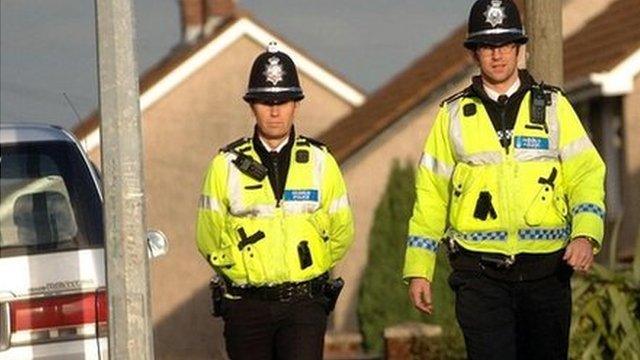Police forces 'sleepwalking' away from communities
- Published
- comments
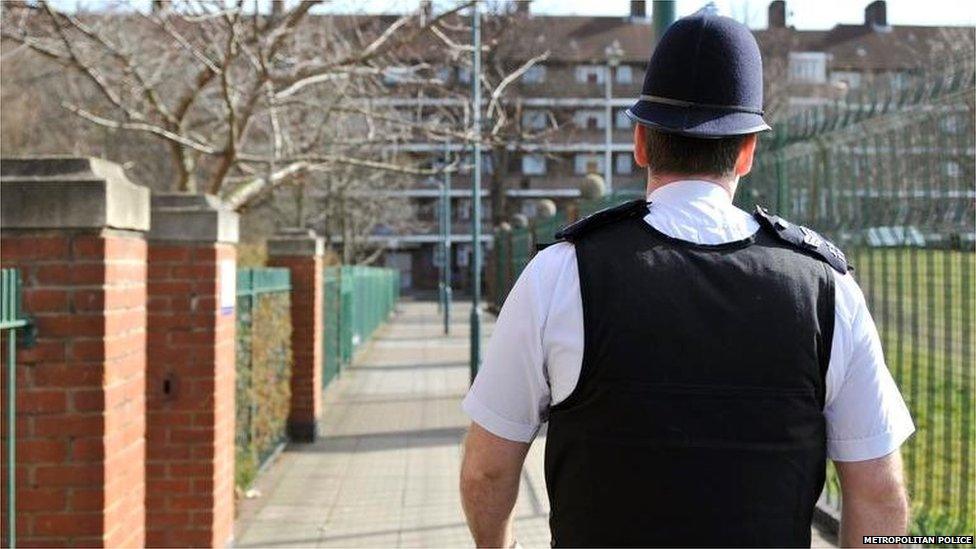
Police forces could be "sleepwalking" back to an old model of policing where they are "isolated from communities", an Inspector of Constabulary has said, external.
Zoe Billingham said officers in England and Wales were being taken off the beat to man front counters, do desk work in stations and guard crime scenes.
This meant they now had less time for "vitally important preventative work in communities", she said.
The government said police reform was working and crime had fallen.
'Eyes and ears'
The only force to be rated "outstanding" by inspectors was Durham, while 24 forces were rated "good", 18 were rated "requires improvement" and none was rated "inadequate".
In her report on police effectiveness, efficiency and legitimacy, Ms Billingham praised police forces but warned crime prevention work was "at risk if neighbourhood policing is further eroded".
"Front-line neighbourhood police officers have told us repeatedly that they are being pulled from their vitally important preventative work in communities to fulfil other duties, like guarding crime scenes, spending time in stations investigating crimes or staffing police station front counters," she said.
"Losing our eyes and ears in the community is only likely to hamper good performance in preventing crime."
She said police leaders must take heed of the warning and "make sure that neighbourhood policing - the cornerstone of the British policing model - is preserved for future generations".

Analysis
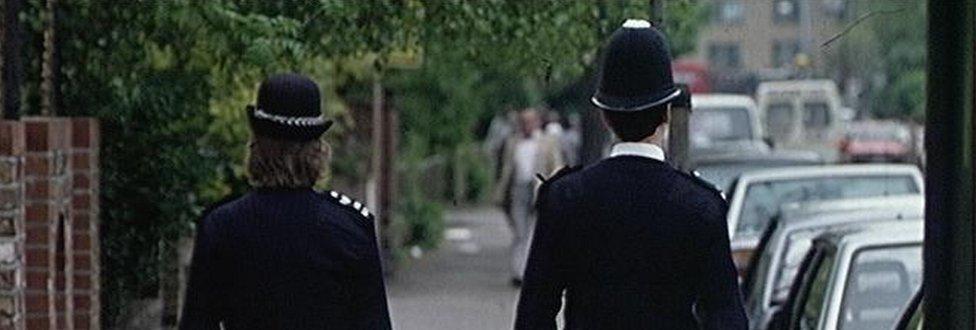
By Danny Shaw, BBC home affairs correspondent
In the 1960s and 70s the gap between police and local communities widened - partly, it's believed, because officers began whizzing around in panda cars and spent less time on the beat.
The Scarman report, following the Brixton riots in 1981, emphasised the importance of getting officers back into neighbourhoods, and a further push came 20 years later with the creation of Police Community Support Officers.
They, along with dedicated neighbourhood police officers, are meant to provide reassurance, gather intelligence and prevent crime.
In a 2013 review for the Labour Party, Lord Stevens warned that owing to budget cuts and a focus on being "crime-fighters" the police service was "in danger of retreating to a discredited model of reactive policing".
The HM Inspectorate of Constabulary report provides the clearest evidence yet that the former Metropolitan Police commissioner may be right.

Ms Billingham said it was "disappointing" that there had not been more progress on concerns she raised last year.
"More than a third of forces are judged to require improvement in how they investigate crime and manage offenders, with backlogs and delays in the units which extract and analyse evidence from digital devices a particular concern," she said.
She also noted "relatively poor" performance in supporting vulnerable victims.
But she said most forces had been rated either "good" or "outstanding" in terms of tackling the most serious crimes and preventing crime and anti-social behaviour.
Matthew Horne, Deputy Chief Constable of Essex Police, one of the forces found to require improvement, told BBC Radio 4's Today programme: "I think we welcome the debate, and this is not me pushing back at the report in any way, because we have to have that debate.
"We've increased our capability to investigate digital crime... domestic abuse [and] child abuse. When you investigate those offences by necessity some of the officers aren't always on patrol."
'No excuse'
Policing minister Mike Penning said: "Police reform is working and crime has fallen by more than a quarter since 2010, according to the independent crime survey for England and Wales."
He said the government had made policing "more professional, less bureaucratic for officers and more responsive to victims".
"Last year we protected police budgets for the next four years, once local precept is taken into account," he added.
"Chief constables and Police and Crime Commissioners have no excuse whatsoever not to deliver at least good quality policing in their areas."
Labour said "reckless cuts" were "eroding neighbourhood policing in communities".
Shadow policing minister Jack Dromey said: "The police are now spread so thinly that they are struggling to act as eyes and ears on our streets - undermining, just when national security is at risk, efforts to counter the threat we face from terrorism."
- Published24 November 2015
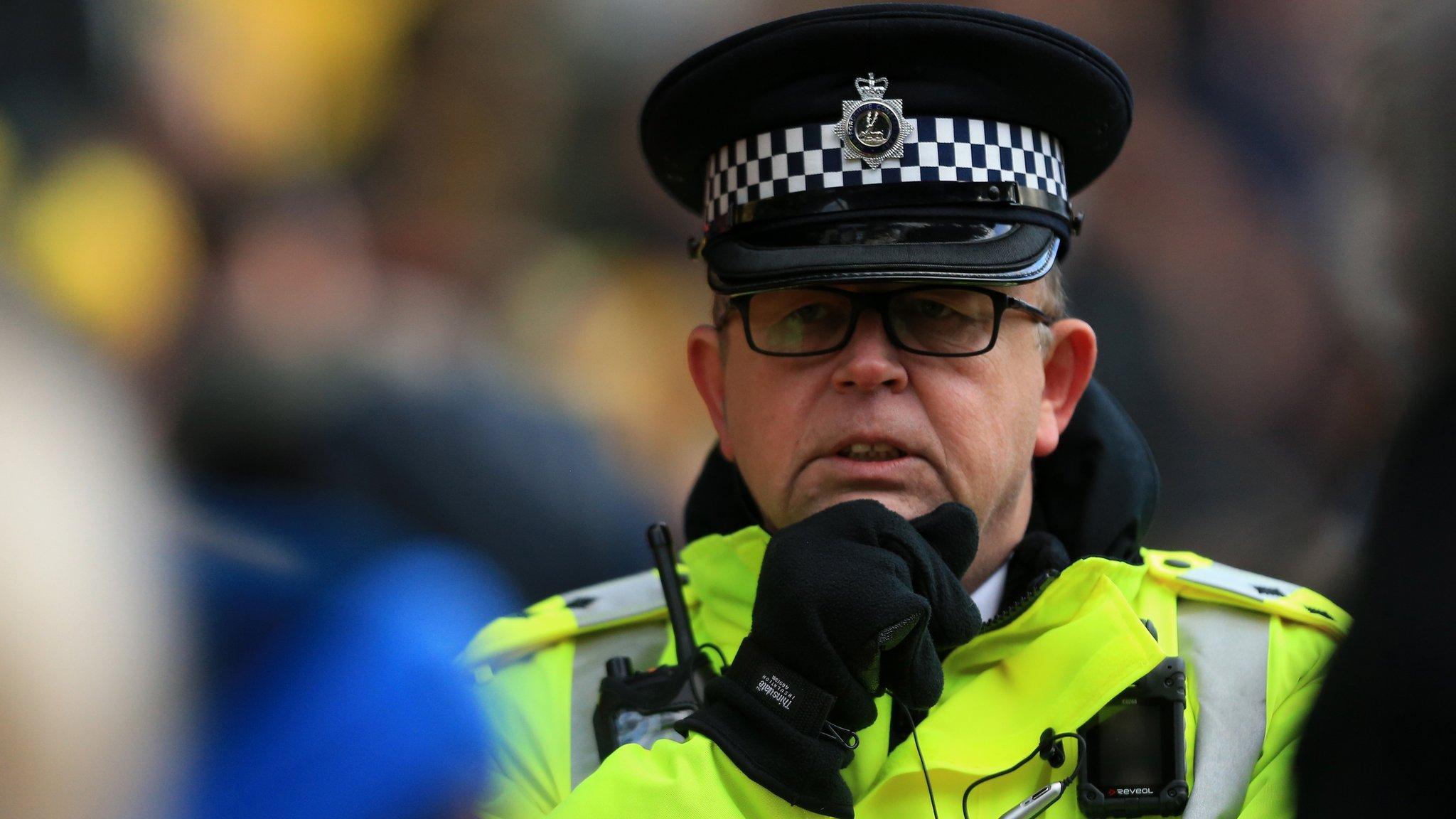
- Published20 October 2015
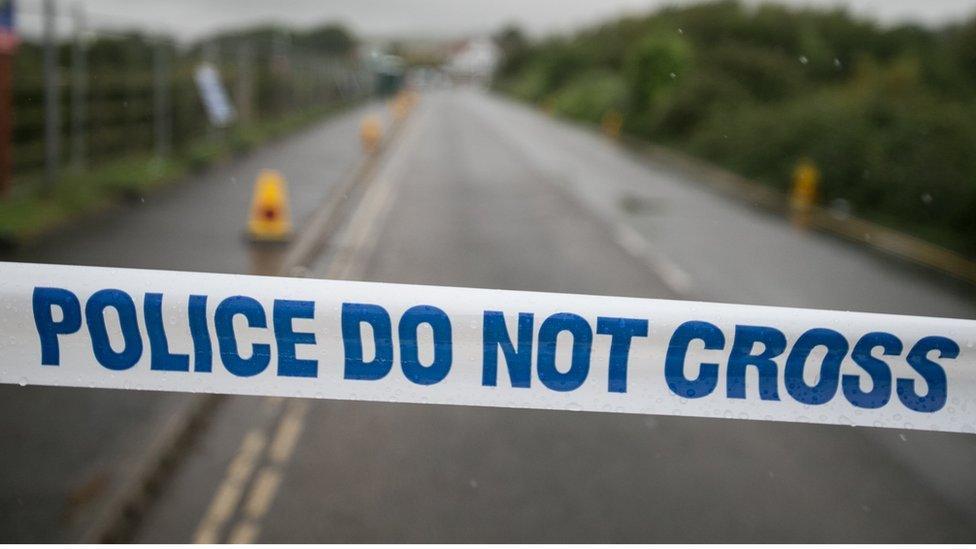
- Published15 October 2015
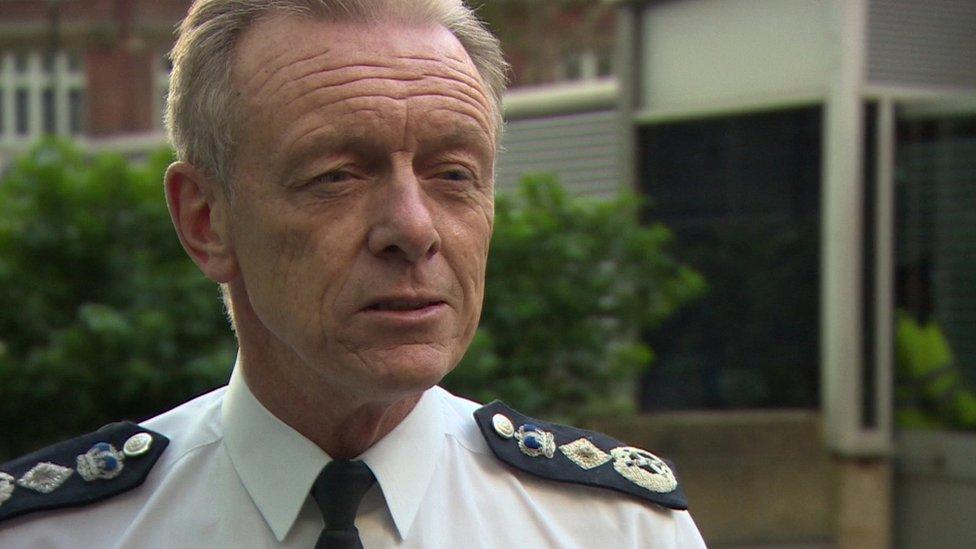
- Published18 September 2015
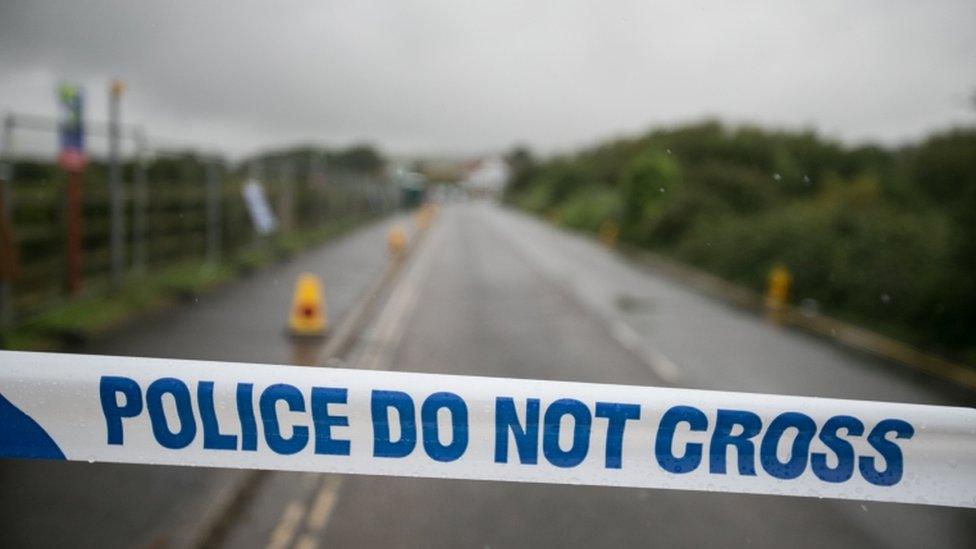
- Published20 May 2015
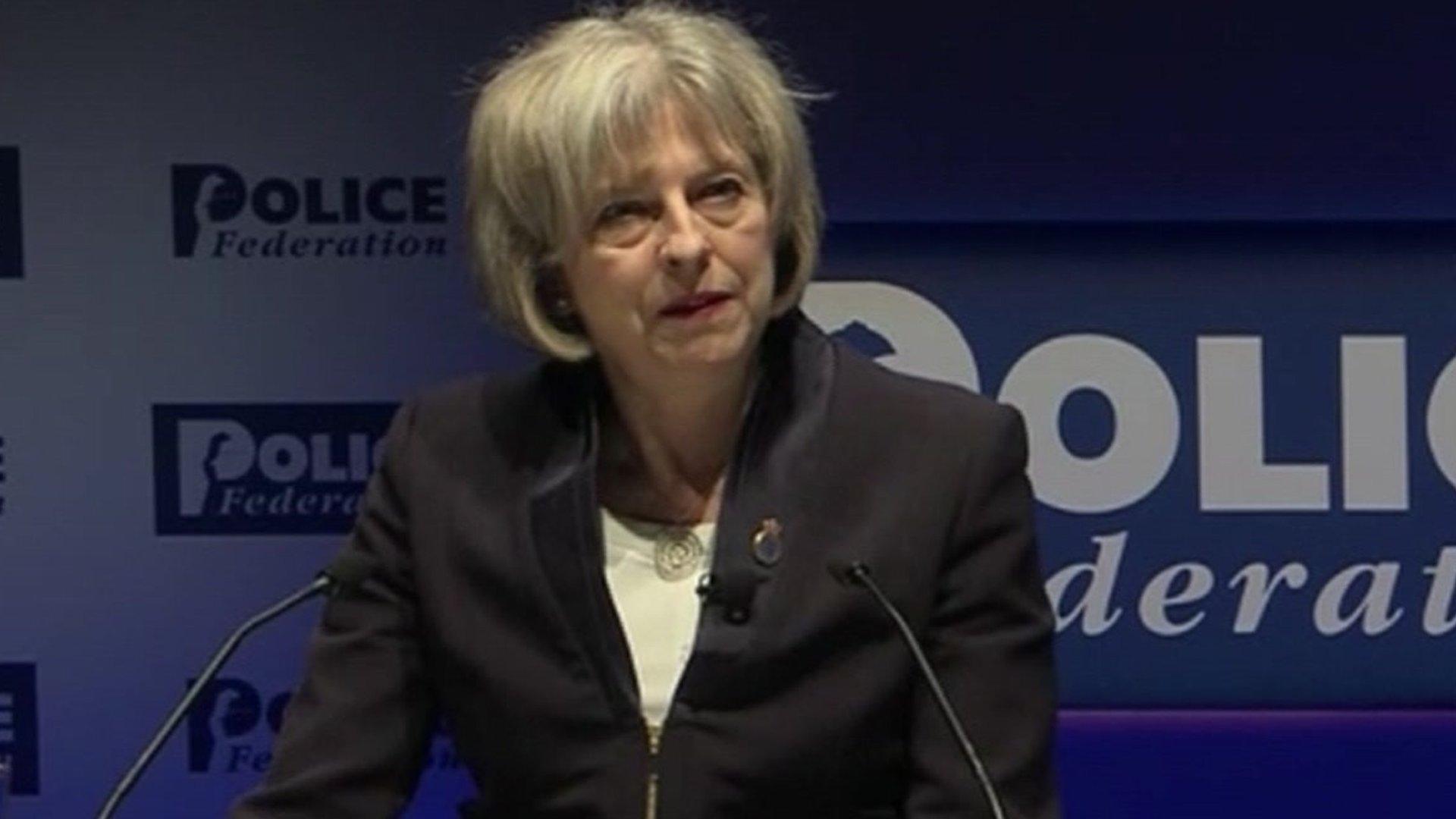
- Published20 May 2015
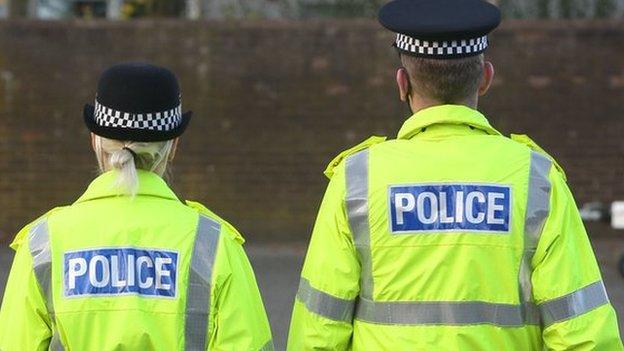
- Published20 May 2015
